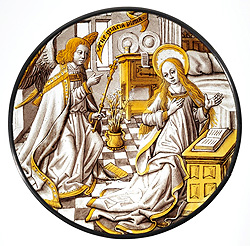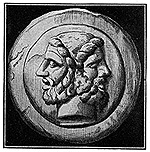This is sometimes dismissed in conversation as being due to the change from a Julian to a Gregorian Calendar.
But the date and calendar change was assigned by Pope Gregory XIII who also carried forward plans of converting Jews to Christianity and to torture them.
And although this established the new date of the New Year at Jan 1st in many places this date was ignored.
Julius Caesar first proposed January 1st as the beginning of each year in 46BC.
January was named after Janus the God of doors and gates.
Janus was depicted as a two headed God that could see both forwards and backwards at the same time, so he could also oversee transitions from the past to the future.
In Roman times the New Years Celebrations were bloody and drunken affairs, so the more things change the more they stay the same.
According to the Catholic tradition January 1st is the day when Jesus was given his name at his circumcision eight days after his birth.
William the bastard, The Duke of Normandy and also known as William the Conqueror decreed January the first to be New Year.
 This would coincidently match his coronation in England with the circumcision of Jesus.
This would coincidently match his coronation in England with the circumcision of Jesus.This lasted for a while but the new years date was far from standardised.
The Christian world started the New Year on March 25th.
Annunciation Day or Lady Day was the day marked when Mary was told by the Angel Gabriel that she would give birth to the son of God.
Astronomically this makes more sense as the beginning of the new year because it is very close to the spring equinox in the northern hemisphere.
The signs of new life are beginning to show in nature and the day length has reached a balance in day light and night time hours.
 This was so popular that until 1751 the new year started on March 25th or Lady Day.
This was so popular that until 1751 the new year started on March 25th or Lady Day.The date was changed back again to January 1st in England, Wales and the British Dominions in 1751.
New years Day is a national holiday in many parts of the world now however the reasons are not all that clear.
It could just as easily be March the 21st the spring equinox, so the New Year would relate to the first days of spring rather than the first days of winter.
January the first has little astronomical significance the day length reaches a minute longer than the shortest day, but it does not relate to religious festivals like the 21st, 24th, 25th December of the 6th January.
So I suppose it’s a need to get as much light into your life as possible in the darker days of the year.
New is a moveable feast and can be celebrated whenever its good, so whenever you choose to celebrate a new Year I hope you have a good one.


